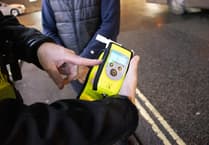The South West has one of the lowest numbers of scarlet fever infections, a new report published by the UK Health Security Agency (UKHSA) today shows.
The report into the incidents of Strep A and scarlet fever infections, which are unusually high this year, has shown that the South West has only reported 3,304 cases (60 per 100,000) of scarlet fever as opposed to the North West of England which has reported nearly double number of cases at 6,232 (84.6 per 100,000).
However, the report also revealed that the South West has the highest rate of invasive group A streptococcus (iGAS) - a severe form of the common Step A illness - in England with 3.7 per 100,000 (201 cases) of the population reportedly having the disease. This is in contrast to the West Midlands with a rate of only 2.2 per 100,000 (131 cases).
Dr Sarah Anderson, UKHSA incident director, said: 'The number of scarlet fever notifications we are seeing each week has fallen, but we are continuing to monitor the data closely as the school term gets underway, and children mix more. The bacteria that cause scarlet fever are still circulating at high levels so it is important that we continue to do our bit to stop the spread of germs to vulnerable groups, including the elderly by washing our hands regularly and thoroughly, catching coughs and sneezes in a tissue, and keeping our homes well ventilated.
'Most winter illnesses can be managed at home and NHS.UK has information to help parents look after children with mild illness. Deaths and serious illness following group A strep infection are very rare and the infection can be easily treated with antibiotics.
'Contact NHS 111 or your GP surgery if you think your child is getting worse, for instance they are feeding or eating less than normal, are dehydrated, have a high temperature that won’t go down, are very hot and sweaty or seem more tired or irritable than normal.'
Invasive group A strep infections remain rare but are currently higher than is seen in a typical year. So far this season, which started in mid-September 2022) there have been 1,539 iGAS cases across all age groups, compared to 2,967 across the whole of the last comparably high season in 2017 to 2018, and 177 iGAS cases in children aged 1 to 4 compared to 194 cases in that age group across the whole of the 2017 to 2018 season.




